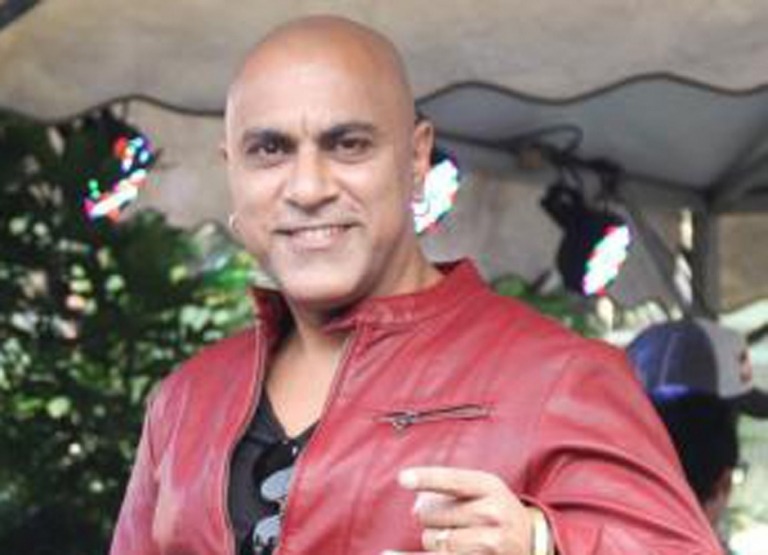B’wood’s second-hand music fad is here to stay
Baba Sehgal
New Delhi, July 21 (IANS) – Not long ago, rapper Baba Sehgal called out “Copywood” — oops, Bollywood — to “stop destroying and ruining original” songs by recreating old classic film soundtracks. The list of recreations, however, only keeps growing, and it doesn’t seem like the Hindi film industry is going to stop serving old songs with a fresh packaging any time soon.
Most singers and composers associated with recreations and remixes, of course, give the trend a thumbs up. She points at the success of such songs to justify their existence.
“‘Soch na sake’ was received extremely well, and so was ‘Laung laachi’, ‘Gulabi aankhen’, ‘Shehar ki ladki’ and the recent ‘O saki saki’,” Tulsi pointed out while speaking to IANS.
“I feel these songs are gems and classics, and only the extremely popular track gets recreated. The songs have a strong recall value which is why the recreation is done,” she said, as reason why she takes up such songs.
Playback star Sonu Nigam, on the other hand, doesn’t think too highly of the trend. He doesn’t want any of his songs to be remade.
“I am the singer of the song. Why would I want anybody to take away the credit? I can’t stop anyone from doing anything. People tried making (recreating) ‘Deewana tera’ and it didn’t work. That’s the connection music lovers have with a particular song and a voice,” Sonu said.
The new version of the nineties’ hit, “Deewana tera”, sung by Arijit Singh, was used in the 2015 film “Ek Paheli Leela”.
Similarly, singer Arjun Kanungo’s 2018 number “La la la” was recreated for the Saif Ali Khan-starrer “Bazaar”, which also released in the same year!
Kanungo probably hits the nail on the head when he guesses the likely reason why recreating new versions of old hits has suddenly become a rage.
“I think it (the trend) has nothing to do with singers or composers. It has to do with the record labels who are pushing their old catalogues. They can see a business opportunity in this,” said Kanungo.
Bhushan Kumar, Chairman and Managing Director of T-Series, however, insists music labels like his are only catering what the audience wants.
“If recreations are being made and the listeners and viewers are consuming those songs on audio and video platforms, it’s a proof that they like these songs. When they reject these songs, gradually the production of such songs will also become less. It’s simple demand and supply,” Bhushan Kumar told IANS, adding that recreating an old song demands a lot more work than re-mixing it.
“We recreate the song retaining the old melody, keeping the first few lines intact for recall value. Thereafter, it has new lyrics especially penned for it, a new sound and arrangement. Today’s young generation is lapping it up. Many hear the song for first time. Then, when they get to know that a similar song existed 20 years ago, they will, out of curiosity, check out the original, too. Not just us, everyone is doing it because recreations work, if done with thought and care,” Kumar added.
Kumar insists recreations are not a passing fad. “We use the essence of the old song and all other aspects are new. Recreations are here to stay.”
The trend isn’t region or country specific. Even in the West, a lot of popular songs have been recreated. Remember Bob Dylan’s “Knockin’ on heaven’s door”? Globally renowned artistes such as Guns N’ Roses and Eric Clapton have given their own touch to the evergreen song. The same goes for country singer Dolly Parton’s “I will always love you” — a song that later became one of Whitney Houston’s greatest hits, thanks to her powerful voice.
In Bollywood, a recreation generally means getting a rapper and female singers on board and fusing their voices with electronic music. Why not experiment more with the genre?
“We can do what you are suggesting in the future and if that works then more people in the music industry will attempt it. Given the right circumstances, it would be good idea to try out. Let’s hope we can recreate an old song in a completely new avatar. Right now, we are doing what has been doing well so far,” Kumar said.
Giving a detailed explanation, Tulsi Kumar said: “A remix and a recreation are two different things. A remix is where you pick up an old song and mix beats to it. In a recreation, a lot of creativity is involved, because when you retain the hook of a popular song, the challenge is to connect it with a new melody that flows into that hook. When you’ve heard the iconic original song a gazillion times and you’ve to create something new, as a singer, you have to sound like yourself and not go back to the same zone, because you have to sound different and the recreation has to have a new vibe. I think it’s a bigger challenge for the singer as well as the composer.”
Tulsi is clearly impressed with Tanishk Bagchi, Bollywood’s king of recreations whose hits include “Humma Humma” and “Raat baki”.
“I feel that he (Tanishk) is doing it beautifully. I think recreation is an art and few people can deal with it correctly. I would say Tanishk is doing it fabulously,” said Tulsi.
(Natalia Ningthoujam can be contacted at natalia.n@ians.in)
Disclaimer: Validity of the above story is for 7 Days from original date of publishing. Source: AFP.


